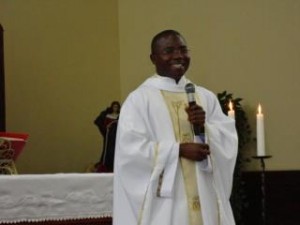 Mark, the Evangelist, narrates that Jesus was going to “His own land”, this is to His city of origin, the city of His family: Nazareth. For Mark, this is the last time that He went to that place. It is also the last time that He entered that synagogue, the place where the Jews, met on the sabath to hear the word of God and to pray. At the beginning, whomever admired him were the listeners. However, this admiration did not bring them to faith in Jesus, but rather to reject Him. In the end of the Gospel, it is Jesus who is shocked with the lack of faith of those people. This lack of faith in the man Jesus impedes the realization of miracles, this is it, the Reign is not happening in Nazareth.
Mark, the Evangelist, narrates that Jesus was going to “His own land”, this is to His city of origin, the city of His family: Nazareth. For Mark, this is the last time that He went to that place. It is also the last time that He entered that synagogue, the place where the Jews, met on the sabath to hear the word of God and to pray. At the beginning, whomever admired him were the listeners. However, this admiration did not bring them to faith in Jesus, but rather to reject Him. In the end of the Gospel, it is Jesus who is shocked with the lack of faith of those people. This lack of faith in the man Jesus impedes the realization of miracles, this is it, the Reign is not happening in Nazareth.
Mark gives understanding that the people were tired of this custom. In fact, when the Lord entered, for the first time, in the synagogue and begins to teach (cf 1:21-28), the people like this new teaching given with authority. (cf 1:27)
In Nazareth, land of Jesus, the things take a different road. It is that He had not frequented neither school of teaching of Scriptures, not made any form of specialization. Beyond this, His teaching is accompanied by a practice of freeing people from whatever type of oppression. Mark did not seek to show Him teaching without before showing Him from this true freedom of men. Better still: His teaching is a practice of authentic freedom.
In Nazareth, one day on the Sabath, Jesus is teaching in the syagogue. But one time the evangelist does not say that Jesus teaches. We do not need explanations, for we know that type of teaching is from Him.
People that are in the synagogue manifest their perplexity and lack of belief in relation to Jesus. The first and the second bring suspicion and skepticism: “From where did he receive all this? How did he receive such wisdom?” (John 7:27) Jesus, therefore, couldn not be the Messiah, for his origin was known by all. Beyond this, for the the countrymen of Christ it is impossible “to do theology” without passing through the school of doctors of the law and pharisees.
The third question bring suspicion over whomever acts through Jesus: “And these great miracles that are realized by his hands?” A little before, some doctors of the Law affirmed that the chief of demons acted in Jesus bringing Him to expel demons. The people of Nazareth allow this mentality to shine.
The last question synthesizes all the rest: “Isn’t this man the carpenter, the son of Mary and the brother of James, of José, of Judas and of Simon? Don’t his sisters live here with us?” It is a question demoralizing and debouched. When one wants to despise someone, it is enough to substitute the name of the father for that of the mother. For this the expression “son of Mary” (Not to say that Joseph was already dead) it is highly derogatory. And the conclusion is very simple: “They remain scandalized because of Him”, that is his countrymen reject Him.
Jesus, therefore, was rejected, because he presented himself as a worker that grew up in Nazareth at the side of his parents, friends and aquaintances. His countrymen, did not discover in Him nothing extraordinary that could show Him as the Messiah of God, but the extraordinariness of Jesus-Messiah is this that, in the incarnation, in the act of not having anything could differentiate Him from the common human condition. The Son of God makes Himself oneof us, and here is the nub of the question” Many affirmed that “they did not believe, because they did not see”. The country men of Jesus did not believe, just because they saw Jesus worker, the Son of Mary, a man of the people that did not attend any superior school, a man who came from Nazareth, an insignificant place.
The “scandal” of the Incarnation continues being a thorn in the throat of many Christians of good will. For being incarnated in the human realities, Jesus-Messiah, was rejected. This makes thinking of the challenge that is the incarnation of the Gospel in the reality of the people. do we remain paralyzed as the countrymen of Jesus?
Father, open my mind and my heart that I may understand that the Lord serves through the media of modest humanity to realize his marvels.
Father Bantu Mendonça
Fr. Bantu Mendonça Katchipwi Sayla is a priest for the Diocese of Tubarão, Angola
His YouTube Page is: http://www.youtube.com/user/bamksayla (Portuguese)

